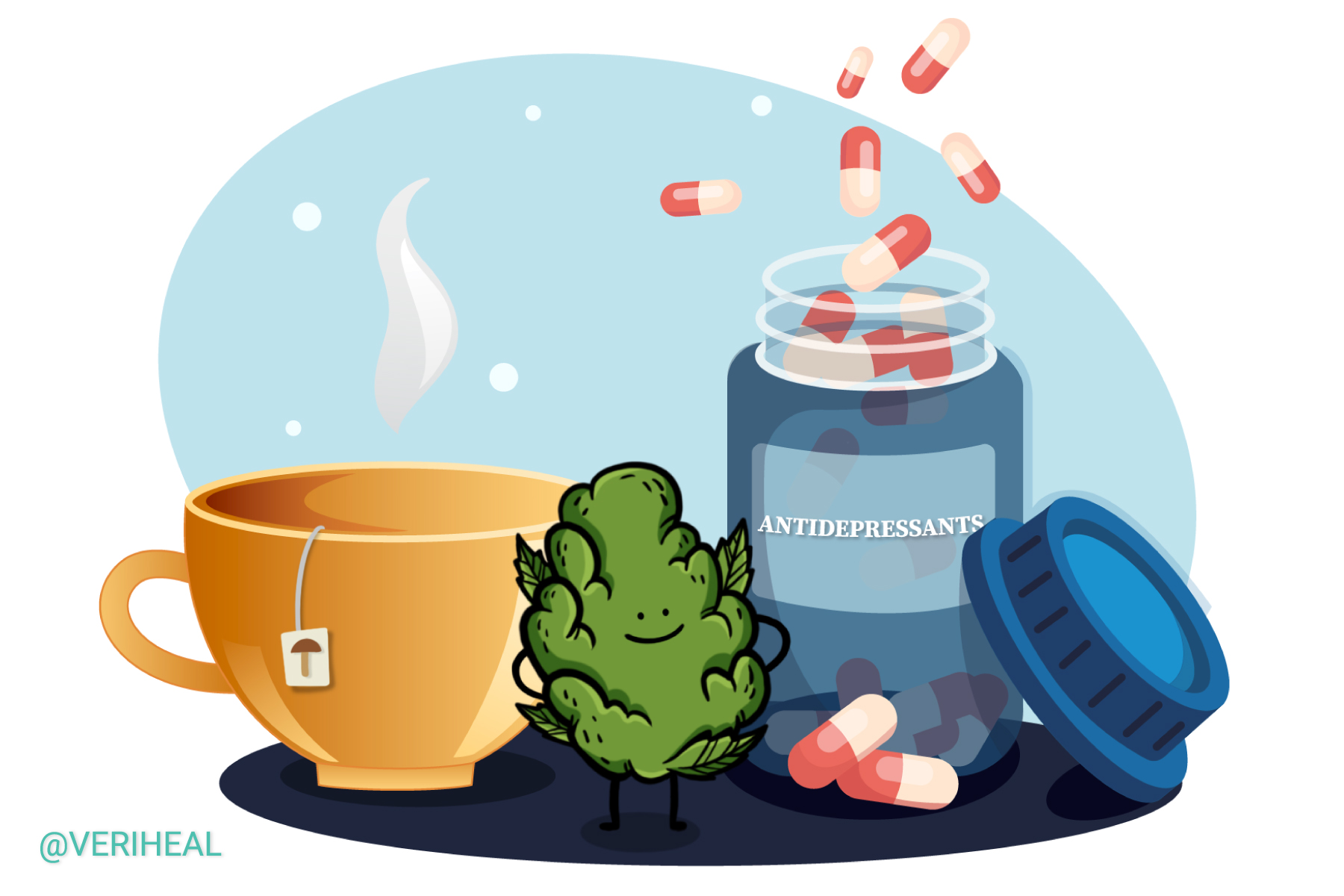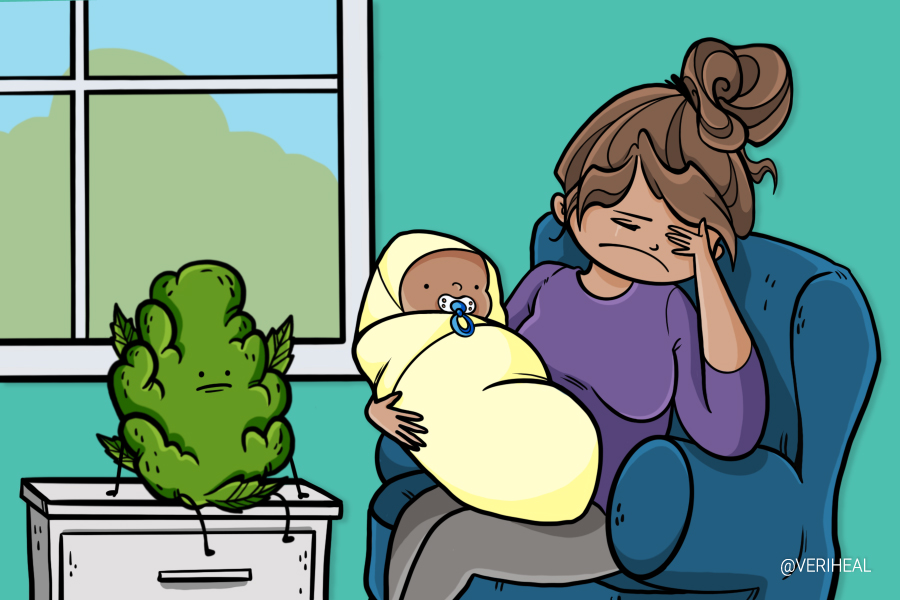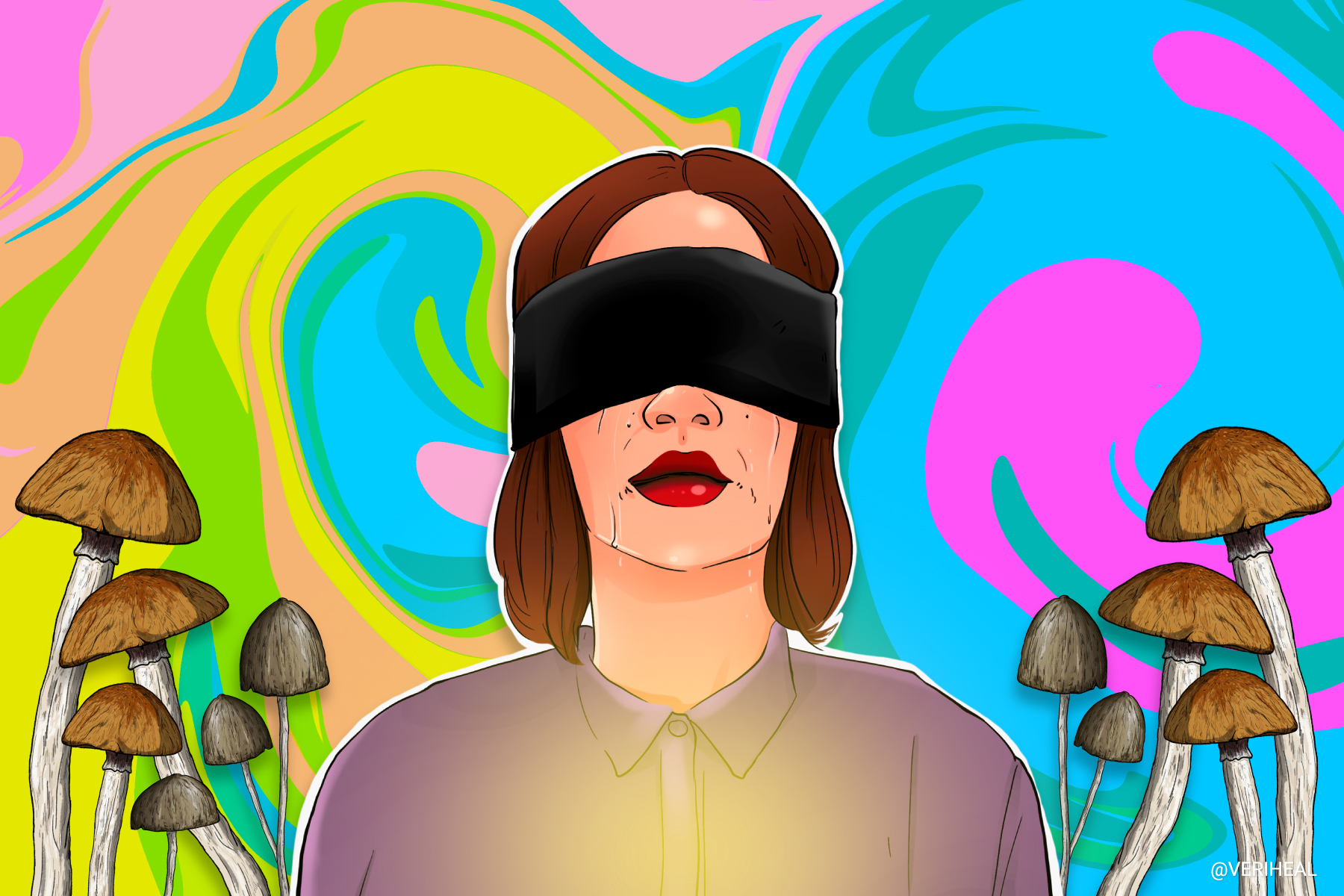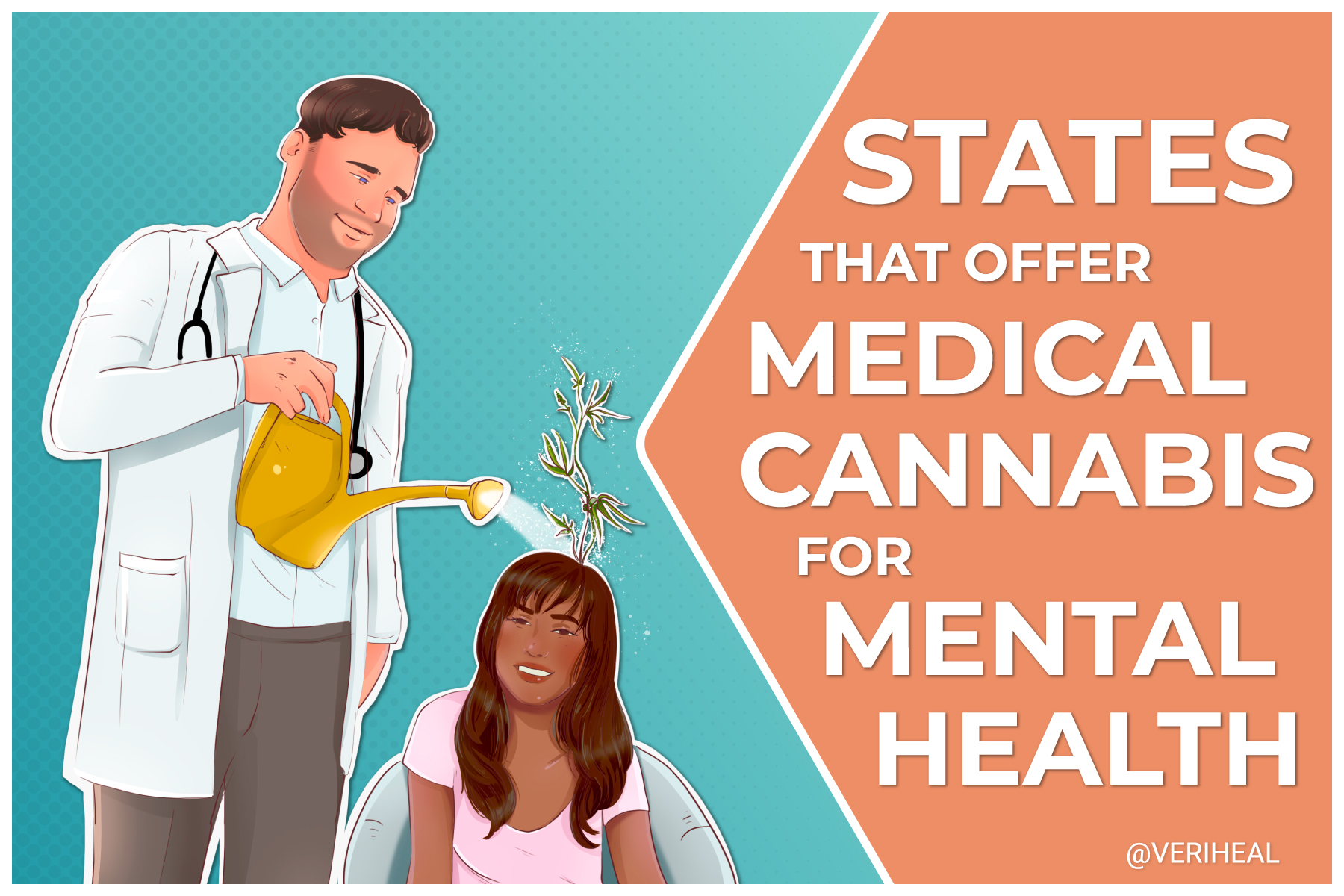Marijuana for Depression: Does It Help Patients Find Relief?

- Treatment of Depression with Medical Cannabis
- Depression and Medical Cannabis: Considerations to Keep in Mind
- Understanding Neurotransmitters that Affect Mood Disorders
- What Does the Science Say About Depression and Medical Cannabis?
When someone takes cannabis, the body responds to the chemicals a user ingests by releasing neurotransmitters that affect the brain and body. The chemical compounds that influence the neurotransmitters are called endocannabinoids, which can be made by the body or introduced through medical marijuana. The brain typically maintains neurotransmitter levels that affect your senses, moods and more, but when it can’t maintain these levels, people experience a lot of sadness, irritability and moodiness (3).These symptoms are some of the main symptoms in depression and other mental health conditions.
Current medical cannabis research tells us that through CB1 and CB2 receptors in the brain, cannabinoids such as Δ9-tetrahydrocannabinol (THC) and cannabidiol (CBD) impact the brain, leading to reduced stress and anxiety symptoms. This is important because chronic stress and anxiety disorders often occur with depression and can influence it to make the depressive symptoms worse.
To learn more about how the endocannabinoid system works, check out our endocannabinoid guide.
Treatment of Depression with Medical Cannabis
Preliminary research from the Research Institute on Addictions (RIA) at the University at Buffalo is focusing on endocannabinoids, depression and stress. This animal research is showing that cannabinoids such as THC and CBD can help reduce stress, which is a major cause of depression in both animals and people (9).
To date, however, no randomized control studies exist yet to understand the effects of marijuana use or CBD on depression in humans (10). Yet, in a 2016 survey, over 50% of surveyed medical marijuana users in Washington reported depression as a condition they were treating (11).
Depression and Medical Cannabis: Considerations to Keep in Mind
If you are also experiencing anxiety along with depression, it is important to take into consideration that high doses of THC often increase anxiety, paranoia, and panic. There are also not a lot of qualitative studies that show that depression can be regulated long-term with the use of marijuana, so we don’t know the short-term and long-term side effects.
Marijuana use might be considered part of, but cannot replace, a personalized mental health treatment plan between you and your medical provider. However, it may also possibly make things worse. Remember that depression is a serious health condition that should be managed by a qualified professional, and always seek medical care for mental illness emergencies.
Understanding Neurotransmitters that Affect Mood Disorders
The following neurotransmitters are activated in the brain and influence stress, anxiety and depression disorders (3):
- Acetylcholine- enhances memory and learning recall.
- Serotonin- regulates sleep, appetite, mood, and inhibits pain.
- Norepinephrine- constricts blood vessels and can raise blood pressure. It also triggers anxiety and some types of depression.
- Dopamine- influences motivation and plays a role in how reality is perceived. It is the brain’s reward system.
- Glutamate- is an excitatory neurotransmitter that plays a role in bipolar disorder and schizophrenia.
- Gamma- aminobutyric acid (GABA)- is an inhibitory neurotransmitter that is thought to lower anxiety.
What Does the Science Say About Depression and Medical Cannabis?
Preliminary research on the effects of different plant-based terpenes and rodents shows us promising results when it comes to depression and anxiety. One of the terpenes tested was a terpene that is often found in cannabis as well as lavender, called linalool. This study gave male swiss mice varying doses of linalool. The results showed that linalool has an antidepressant effect when the mice were given 100 mg and 200 mg doses (8).
Researchers believe that linalool activates 5-HT1A neurotransmitter receptors, impacting serotonin levels in the brain (8). Linalool also activates the noradrenergic mechanism, which plays a role in prescription anti-depressants. To learn more about terpenes, check out our cannabis terpene guide.
Most studies about depression and cannabis are done on mice, demonstrating the need for randomized, controlled human studies to prove any benefits and demonstrate the long-term effects of cannabis use and terpenes on depression. However, one observational study published in 2020 provided some insight into the impact of cannabis on human depression (4). Based on self-reports from 1,819 depression patients, over 95% experienced immediate symptom relief after cannabis consumption.
Note: Veriheal does not intend to give this as professional medical advice. Do not attempt to self-diagnose, or prescribe treatment based on the information provided on this page. Always consult a physician before making any decision on the treatment of a medical condition.
1. El-Alfy, A. T., Ivey, K., Robinson, K., Ahmed, S., Radwan, M., Slade, D., Khan, I., ElSohly, M., & Ross, S. (2010). Antidepressant-like effect of delta9-tetrahydrocannabinol and other cannabinoids isolated from Cannabis sativa L. Pharmacology, biochemistry, and behavior, 95(4), 434–442. https://www.sciencedirect.com/science/article/abs/pii/S0091305710000730?via%3Dihub
2. García-Ríos, R. I., Mora-Pérez, A., Ramos-Molina, A. R., & Soria-Fregozo, C. (2020). Neuropharmacology of Secondary Metabolites from Plants with Anxiolytic and Antidepressant Properties. Behavioral Pharmacology – From Basic to Clinical Research. https://www.researchgate.net/publication/339231900_Neuropharmacology_of_Secondary_Metabolites_from_Plants_with_Anxiolytic_and_Antidepressant_Properties
3. H. (2019, June 24). What causes depression? Retrieved January 24, 2021, from https://www.health.harvard.edu/mind-and-mood/what-causes-depression
4. Li, X., Diviant, J. P., Stith, S. S., Brockelman, F., Keeling, K., Hall, B., & Vigil, J. M. (2020). The Effectiveness of Cannabis Flower for Immediate Relief from Symptoms of Depression. The Yale journal of biology and medicine, 93(2), 251–264. https://www.ncbi.nlm.nih.gov/pmc/articles/PMC7309674/
5. Sarris, J., Sinclair, J., Karamacoska, D. et al. Medicinal cannabis for psychiatric disorders: a clinically-focused systematic review. BMC Psychiatry 20, 24 (2020). https://bmcpsychiatry.biomedcentral.com/articles/10.1186/s12888-019-2409-8
6. Scherma, M., Masia, P., Deidda, M., Fratta, W., Tanda, G., & Fadda, P. (2018). New Perspectives on the Use of Cannabis in the Treatment of Psychiatric Disorders. Medicines (Basel, Switzerland), 5(4), 107. https://www.mdpi.com/2305-6320/5/4/107
7. Stoner SA. Effects of Marijuana on Mental Health: Depression. Alcohol & Drug Abuse Institute, University of Washington, June 2017. URL: http://adai.uw.edu/pubs/pdf/2017mjdepression.pdf.
8. Vieira, G., Cavalli, J., Gonçalves, E. C., Braga, S. F., Ferreira, R. S., Santos, A. R., . . . Dutra, R. C. (2020). Antidepressant-Like Effect of Terpineol in an Inflammatory Model of Depression: Involvement of the Cannabinoid System and D2 Dopamine Receptor. Biomolecules, 10(5), 792. https://www.researchgate.net/publication/341527460_Antidepressant-Like_Effect_of_Terpineol_in_an_Inflammatory_Model_of_Depression_Involvement_of_the_Cannabinoid_System_and_D2_Dopamine_Receptor
9. RIA neuroscience study points to possible use of medical marijuana for depression. (2015, February 04). Retrieved January 24, 2021, from http://www.buffalo.edu/news/releases/2015/02/004.html
10. Black, N., Stockings, E., Campbell, G., Tran, L. T., Zagic, D., Hall, W. D., Farrell, M., & Degenhardt, L. (2019). Cannabinoids for the treatment of mental disorders and symptoms of mental disorders: a systematic review and meta-analysis. The lancet. Psychiatry, 6(12), 995–1010. https://www.ncbi.nlm.nih.gov/pmc/articles/PMC6949116/
11. Sexton, M., Cuttler, C., Finnell, J. S., & Mischley, L. K. (2016). A cross-sectional survey of medical CANNABIS Users: Patterns of use and Perceived Efficacy. Cannabis and Cannabinoid Research, 1(1), 131-138. https://www.liebertpub.com/doi/10.1089/can.2016.0007

















